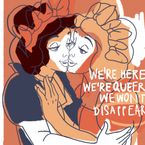Elections in Kashmir, Romania and Namibia – issues behind
Every third Romanian citizen (six million people altogether) lives on the verge of poverty. Despite that, there was no space for addressing their hardships in the recent parliamentary elections campaign. Marginalized people do not trust the government because many politicians despise their poverty and see it as a fault of those affected. The political parties get their votes for promises never kept and casual support offered just before elections. A quarter of citizens of this E.U. country have to use outdoor toilets, and one in ten kids go to sleep hungry.
Municipal elections in Namibia, which became world-famous because of the candidate named Adolf Hitler Uunoma, are a sign of change in the country’s politics. Last year, the SWAPO party – in power since 1990 – for the first time lost the supermajority in the parliament. Now they fell from full control in 52 (out of 57) to just 20 municipalities. Henning Melber from the University of Pretoria thinks it will be a test to Namibian democracy – as some SWAPO members already suggested to financially starve regions governed by other parties.
The upcoming local elections in Kashmir are the Indian’s government attempt to show normalization in the region but they lack credibility, according to analysts. Last August India’s nationalist government of Prime Minister Narendra Modi revoked article 370 of the constitution of India, taking away Kashmir’s autonomy, own constitution, ability to make laws, and even the Kashmir’s flag. The newly elected politicians will have little power as the region is run directly from New Delhi.


























